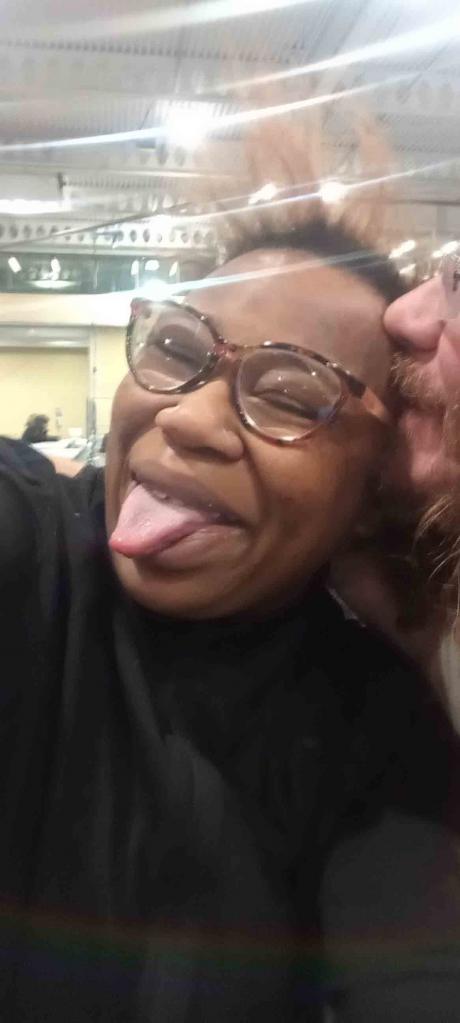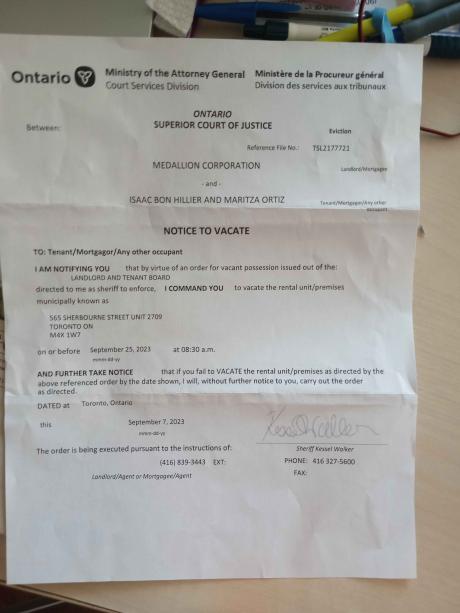Denial of Paternal Abuse & 7 Signs That You'd Be Better Off Ending a Relationship
Editor's Note Foreword:
- 2024-05-30:
Isaac & Maritza (aka Chad & Stacy) have been apart since she stormed out on May 8th, 2024.
- 2023-06-29:
Isaac (aka Chad) & Maritza (aka Stacy) have been working through this matter and are presently in a state of cohesion. Every choice has its consequences by God's agency and/or actors' comprehension.
EVITACION TIMELINE
427 DAYS ABSENTIA — 358+69=427
This breakdown is initiated from the death of Ms Maritza Elizabeth Orozco's Mother Ms Hilda Esperanza Orozco on July 5th, 2021. The pattern exists...
ONGOING VIOLATION OF SACRAMENT OF MATRIMONY ALLOWS SEGUE TO KELLY-ANNE 20250405 20250405 01 days absence —— Apr05 '25 » Apr05 '25 3020250329 20250331 03 days absence —— Mar23 '25 » Mar31 '25 29 20250323 20250324 02 days absence —— Mar23 '25 » Mar24 '25 28 20241112 20250321 126 days absence —— Nov12 '24 » Mar21 '25 27 20240921 20241107 42 days absence —— Sep21 '24 » Nov07 '24 26 20240914 20240915 01 days absence —— Aug22 '24 » Sep15 '24 25 20240822 20240913 23 days absence —— Aug22 '24 » Sep13 '24 24 20240808 20240809 01 days absence —— Aug08 '24 » Aug09 '24 23 20240708 20240709 01 days absence —— Jul08 '24 » Jul09 '24 22 20240508 20240706 60 days absence —— May08 '24 » Jul06 '24 21 20231218 20231219 02 days absence —— Dec18 '23 » Dec19 '23 20 20231028 20231029 02 days absence —— Oct28 '23 » Oct29 '23 19 20231014 20231021 08 days absence —— Oct14 '23 » Oct21 '23 18 20231009 20231012 04 days absence —— Oct09 '23 » Oct12 '23 17 20230501 20230503 03 days absence —— May01 '23 » May03 '23 16 20230421 20230428 08 days absence —— Apr21 '23 » Apr28 '23 15 20230401 20230411 10 days absence —— Apr01 '23 » Apr11 '23 14 20221006 20221213 69 days incense —— Oct06 '22 » Dec13 '22 69 20220926 20221003 07 days absence —— Sep26 '22 » Oct03 '22 13 20220909 20220914 05 days absence —— Sep09 '22 » Sep14 '22 12 20220613 20220622 09 days absence —— Jun13 '22 » Jun22 '22 11 20220601 20220611 10 days absence —— Jun01 '22 » Jun11 '22 10 20220514 20220516 03 days absence —— May14 '22 » May16 '22 09 20220502 20220512 10 days absence —— May02 '22 » May12 '22 08 20220421 20220423 03 days absence —— Apr21 '22 » Apr23 '22 07 20220331 20220401 03 days absence —— Mar31 '22 » Apr01 '22 06 20220308 20220309 02 days absence —— Mar08 '22 » Mar09 '22 05 20211212 20211213 02 days absence —— Dec12 '21 » Dec13 '21 04 20211210 20211212 03 days absence —— Dec10 '21 » Dec12 '21 03 20211127 20211130 04 days absence —— Nov27 '21 » Nov30 '21 02 20211024 20211026 03 days absence —— Oct24 '21 » Oct26 '21 01 20210705 HILDA DIES.. AND IS.. BURIED —— UNTIL DEATH DO US PART 00 20210601 VATICAN MANDATES PUNISHMENT FOR CHILD RAPIST FATHERS -1 See similar occurrence about the.. Usage of mature kids and protecting therapists of children.
—————————————————————————————————————————————
20210705 MARITZA'S MUM DIED, SNOWBALL STARTS ROLLING. MARI IS NOT AN ADULT.
MARITZA PROTECTS HER RAPIST FATHER AS MORE IMPORTANT THAN HER HUSBAND LIKE JUST ABOUT ANY OTHER TRAUMATIZED SEXUAL ABUSE VICTIM, WELL-RAPED DAUGHTER.
—————————————————————————————————————————————
Carla's description was typical of survivors of chronic childhood abuse. Almost always, they deny or minimize the abusive memories. They have to:
it's too painful to believe that their parents would do such a thing. So they fragment the memories into hundreds of shards, leaving only acceptable traces in their conscious minds. Rationalizations like:
- "my childhood was rough"
- "he only did it to me once or twice"
- "it wasn't so bad"
These are common, masking the fact that the abuse was devastating and chronic. But while the knowledge, body sensations, and feelings are shattered, they are not forgotten. They intrude in unexpected ways:
- through panic attacks and insomnia
- through dreams and artwork
- through seemingly inexplicable compulsions
- through the shadowy dread of the abusive parent
They live just outside of consciousness like noisy neighbours who bang on the pipes and occasionally show up at the door.
― David L. Calof, The Couple Who Became Each Other: Stories of Healing and Transformation from a Leading Hypnotherapist
7 Signs That You'd Be Better Off Ending a Relationship
Here are clues that it's time to end your relationship.
Posted December 27, 2017 Reviewed by Lybi Ma
Zoran Pucarevic/Shutterstock
Source: Zoran Pucarevic/Shutterstock
It's a question I face frequently in my therapy practice and will tackle in my podcast: "I know my relationship has issues, but do I really want to end it right now? Would I truly be better off alone?"
Of course, real life is not an experiment, and there is no control group. We can never be certain about the potential outcomes of the path not taken. Whatever decision you make, it will be the one you'll live with, and you won't ever be able to know with 100-percent certainty how the opposite choice would have turned out.
Sometimes, however, you can make an extremely educated guess. There are concrete signs that a relationship is unhealthy for you, and keeping you from meeting your full potential. Often, the inertia is strong enough that you may choose to remain in the relationship because the short-term discomfort of ending it keeps you trapped. That feels more visceral — the immediate fear of the (temporary) negative consequences of breaking up — even if you know that in the long-term you would be better off. (Many things that are good for us carry this long-term versus short-term battle, from not wanting to get out of bed early for exercise, to being unable to keep from downing an entire sleeve of Girl Scout cookies.)
Of course, we must keep in mind that deciding you're better off alone when you've been married for 35 years is very different than deciding you're better off alone after your fourth date. In a future post, we'll address the steps to take to extract yourself most healthily from a relationship. For now, though, here are some considerations that suggest your partnership lacks the potential to truly fulfill you.
1. There are constant "if-onlys."
Whether it is you, your partner, or both of you having these thoughts, it's a bad sign if there is always a sense that the relationship could be satisfying if only a certain thing fundamentally changed. Yes, many relationships go through phases where things don't feel quite right, but in the case of a relationship that constantly feels like it needs fixing, true satisfaction will always feel just out of reach. One or both people can start to live in the hypothetical and perhaps unattainable future, rather than in the here and now, which precludes the possibility of true happiness. Does your relationship feel 90 percent good, but that other 10 percent is something that nags at you every day and never feels quite solvable? Sometimes, that can be a sign that you'll never fully fit together well.
2. You don't feel understood.
Maybe you feel that you are loved under certain conditions only, or you keep up a facade for your partner. This can get in the way of true emotional intimacy and feel empty over time — the idea that your partner wouldn't genuinely love the "real" you, if you were truly allowing yourself to be that person. Perhaps you are pretending to be someone you're not, hiding an important part of your personality, or even feigning interest in certain hobbies or activities of theirs to keep them happy, letting them call the shots about how you spend your time. Or maybe you are being yourself — and yet you never feel like your partner actually "gets" you. These types of emotional disconnects can lead to profound loneliness that — ironically — may make you feel even more isolated than if you were single.
3. You feel drained by your partner, even when they're not being particularly draining.
In any relationship, there are times when one partner takes more than gives; equal and perfect reciprocity can rarely be maintained all the time. Good relationships have flexibility and don't bean-count. That said, sometimes someone might feel constantly exhausted by a partner — even if that partner isn't really doing much to be exhausting.
When you are always frustrated by a partner, and you feel that you need a break from them far more often than being with them provides a break — that is a sign that something is seriously off. Perhaps it is something fixable, but if you find it hard to solve or even to put your finger on, it could be a sign that being with them is always going to be more taxing than a relationship should be.
4. You hide major parts of your partner from friends and family.
Perhaps you cover up your partner's drinking or lie about how well they treat others. Maybe you're ashamed to admit how often you fight, or you find yourself censoring the fact that your partner has a long-standing problem with gambling, or you've lost trust in their faithfulness. If you find yourself painting a picture of your partner to others that is not at all representative of who they are, it is a sign that they are simply not measuring up to the standards that you know you should have. It's one thing if you don't feel like telling your conservative parents that your new boyfriend grew up on a commune. But if you are consistently making your partner out to be someone they're not to multiple friends or family members, that's a sign that you know they are not someone with whom you're proud to be.
5. You always assume or imagine that they'll change in some major way before you have a future with them.
Perhaps you've spent years imagining your future with your partner — but it includes a different version of them. You fantasize that they'll magically become more ambitious, more kind, or more helpful around the house. You picture that you'll finally be ready to get engaged when they become more responsible, or that once they "see the light" about commitment, you'll feel ready to settle down with them. Don't fall into the trap of committing to a version of a mate that isn't real. Do you want to be with your partner for the person they are, truly, right here and now? That is much more of an important metric.
6. You have to make apologies for yourself, and often.
It is a warning sign to be taken seriously if you frequently have to apologize to your partner for who you are. Does it seem that you are never good enough? Do your partner's standards feel like they can never be met? When taken to the extreme, this is a clear-cut sign of a controlling relationship. But even in its milder forms, it can take a significant toll on your psyche to feel like your very existence involves doing things "wrong." Maybe it even goes in the other direction:
You have big hopes and dreams that you feel "silly" for having, or that you feel that your partner will quash. Do you long for the freedom that would come with living how you want to live, liberated from criticism and guilt? So, why are you keeping yourself from that freedom?
7. Conflict is constant, and you don't fight "right."
Much marital research has shown us that it is not necessarily the presence of conflict, but rather how you fight, that predicts how happy your relationship will be over time. Are your conflicts riddled with unhealthy patterns, like stonewalling, giving each other the silent treatment, or engaging in hurtful personal attacks? Does resentment grow with each argument, with the real problem never truly getting addressed, let alone solved? Do your conflicts feel not like opportunities to resolve differences or times to understand each other's perspective, but rather opportunities to hurt each other and get out some aggression? Unless you both are motivated to work on these patterns, it is not likely that things will magically change to make your relationship smoother.
Have you dealt with any of these situations? Check out my new mental health talk and advice podcast, Baggage Check, and send in your questions!







Comments
- Reply
Permalink